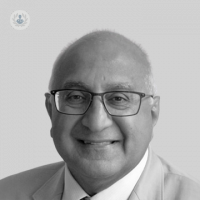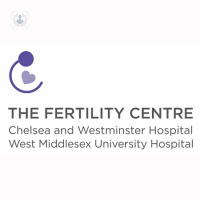What is infertility?
Infertility is the inability of a couple to become pregnant through natural means. Infertility affects the couple, both the man and the woman, who cannot have a child naturally.
There are two types of infertility: primary infertility (affecting couples who have not become pregnant after at least one year of unprotected sexual intercourse) and secondary infertility (affecting couples who were able to become pregnant in the past but are now unable to).

Symptoms of infertility
There are various symptoms of infertility in men and women.
In women, symptoms may be related to the menstrual cycle and ovulation: abnormal menstruation, with more or less bleeding than usual; irregular menstruation, when the number of days between each menstruation is different each month; amenorrhoea, i.e., no menstruation; or dysmenorrhea, very painful menstruation. There may also be symptoms unrelated to menstruation, such as pain during sexual intercourse.
In men, the symptoms of sperm-related infertility include small amounts of ejaculate. There are also symptoms unrelated to semen, such as changes in hair growth, changes in sexual desire and erection problems. Men may also have a low sperm-count, making the chance of conceiving naturally more difficult.
What causes infertility?
Common causes of infertility among men and women are:
- Birth defects of the reproductive system
- Cancer, tumours, chemotherapy drugs, radiation therapy
- Excessive alcohol consumption
- Hormonal imbalances
- Obesity
- Scarring from sexually transmitted infections, abdominal surgery, or endometriosis
- Smoking
- Older age
- Pelvic infection
In women, infertility may be caused by:
- Autoimmune treatments
- Clotting disorders
- Diabetes
- Excessive exercise
- Eating disorders
- Neoplastic lesions of the cervix and/or uterus, ovarian cysts, polycystic ovary syndrome
- Tubal ligation
- Thyroid problems
In men, the causes of infertility may include:
- Impotence
- Infection
- Use of certain medications such as cimetidine, spironolactone, and nitrofurantoin
- Retrograde ejaculation
- Scarring from sexually transmitted diseases, injury, or surgery
- Environmental toxins
- Vasectomy or vasovasostomy failure
Can infertility be prevented?
Generally, if the origin of the infertility is genetic or caused by disease, then nothing can be done.
However, you can avoid certain factors that may cause infertility:
- Take preventive measures against sexually transmitted infections
- Do not use drugs
- Do not drink alcohol frequently or excessively
- Maintain good personal hygiene
- For women, have a gynaecological check-up once a year once you are sexually active
- For men, wear loose underwear and avoid hot baths, saunas and exposure to sources of radiation
What is infertility treatment?
Methods to treat infertility in men and women include taking hormones to resolve the hormonal imbalance, supplements to improve fertility, and antibiotics in the case of infection.
For women, having minor surgery to remove blockages or scar tissue from the fallopian tubes, uterus, or pelvic area is another option.
If these methods are unsuccessful, assisted reproduction techniques can be tried.
11-13-2012 06-15-2023Infertility
Miss Kate Maclaran - Obstetrics & gynaecology
Created on: 11-13-2012
Updated on: 06-15-2023
Edited by: Carlota Pano
What is infertility?
Infertility is the inability of a couple to become pregnant through natural means. Infertility affects the couple, both the man and the woman, who cannot have a child naturally.
There are two types of infertility: primary infertility (affecting couples who have not become pregnant after at least one year of unprotected sexual intercourse) and secondary infertility (affecting couples who were able to become pregnant in the past but are now unable to).

Symptoms of infertility
There are various symptoms of infertility in men and women.
In women, symptoms may be related to the menstrual cycle and ovulation: abnormal menstruation, with more or less bleeding than usual; irregular menstruation, when the number of days between each menstruation is different each month; amenorrhoea, i.e., no menstruation; or dysmenorrhea, very painful menstruation. There may also be symptoms unrelated to menstruation, such as pain during sexual intercourse.
In men, the symptoms of sperm-related infertility include small amounts of ejaculate. There are also symptoms unrelated to semen, such as changes in hair growth, changes in sexual desire and erection problems. Men may also have a low sperm-count, making the chance of conceiving naturally more difficult.
What causes infertility?
Common causes of infertility among men and women are:
- Birth defects of the reproductive system
- Cancer, tumours, chemotherapy drugs, radiation therapy
- Excessive alcohol consumption
- Hormonal imbalances
- Obesity
- Scarring from sexually transmitted infections, abdominal surgery, or endometriosis
- Smoking
- Older age
- Pelvic infection
In women, infertility may be caused by:
- Autoimmune treatments
- Clotting disorders
- Diabetes
- Excessive exercise
- Eating disorders
- Neoplastic lesions of the cervix and/or uterus, ovarian cysts, polycystic ovary syndrome
- Tubal ligation
- Thyroid problems
In men, the causes of infertility may include:
- Impotence
- Infection
- Use of certain medications such as cimetidine, spironolactone, and nitrofurantoin
- Retrograde ejaculation
- Scarring from sexually transmitted diseases, injury, or surgery
- Environmental toxins
- Vasectomy or vasovasostomy failure
Can infertility be prevented?
Generally, if the origin of the infertility is genetic or caused by disease, then nothing can be done.
However, you can avoid certain factors that may cause infertility:
- Take preventive measures against sexually transmitted infections
- Do not use drugs
- Do not drink alcohol frequently or excessively
- Maintain good personal hygiene
- For women, have a gynaecological check-up once a year once you are sexually active
- For men, wear loose underwear and avoid hot baths, saunas and exposure to sources of radiation
What is infertility treatment?
Methods to treat infertility in men and women include taking hormones to resolve the hormonal imbalance, supplements to improve fertility, and antibiotics in the case of infection.
For women, having minor surgery to remove blockages or scar tissue from the fallopian tubes, uterus, or pelvic area is another option.
If these methods are unsuccessful, assisted reproduction techniques can be tried.


Infertility: How long should we try before seeking medical advice?
By Mr Ibrahim Bolaji
2025-01-28
In his latest online article, renwoned consultant obstetrician and gynaecologist Mr Ibrahim Bolaji offers his expert insight into infertility. He explains how long couples should try for before seeking medical advice, as well as the possibler cause of infertility in both men and women. See more


Endometriosis and its diagnosis
By Ms Eleni Mavrides
2025-01-28
Here to tell us all about endometriosis, its diagnosis and the challenges it presents, is leading consultant obstetrician and gynaecologist Ms Eleni Mavrides. See more


Management of fertility in a one-stop assessment clinic
By Mr David Ogutu
2025-01-28
Fertility expert Mr David Ogutu explains how he helps couples investigate their fertility problems at his specialised clinic, the Herts and Essex Fertility Centre. See more


Social egg freezing: simply a trend, or a realistic option?
By Mr David Ogutu
2025-01-28
In the last couple of years, there has been a great deal of press coverage on ‘social egg freezing’, a term used to refer to the process of egg freezing for purely social reasons. Mr David Ogutu, obstetrician, gynaecologist & fertility expert, discusses the options available to women nowadays. See more
Experts in Infertility
-
Mr Adrian Lower
Obstetrics & gynaecologyExpert in:
- Infertility
- Assisted reproductive technology
- Laparoscopy
- Hysteroscopy
- Fibroids
- In vitro fertilisation (IVF)
-
Professor Barbara McGowan
Endocrinology, diabetes & metabolismExpert in:
- Adrenal gland disorders
- Pituitary gland disorders
- Polycystic ovary syndrome (PCOS)
- Infertility
- Obesity
- Thyroid
-
Professor Yacoub Khalaf
Obstetrics & gynaecologyExpert in:
- Infertility
- Assisted reproductive technology
- Preimplantation Genetic Diagnosis
- Recurrent miscarriage
- Fibroids
- Polycystic ovary syndrome (PCOS)
-
Professor Anand Saggar
Clinical geneticsExpert in:
- Chromosomal abnormalities
- Genetic disorders
- Genetic testing
- Breast cancer
- Developmental delay
- Huntington's disease
-
Mr Mahantesh Karoshi
Obstetrics & gynaecologyExpert in:
- Heavy periods
- Polycystic ovary syndrome (PCOS)
- Infertility
- Ovarian cyst
- Adenomyosis
- Miscarriage
- See all

The Fertility Centre - Fertility treatment and preservation
The Fertility Centre - Fertility treatment and preservation
Chelsea and Westminster Hospital, 369 Fulham Road, London SW10 9NH
No existe teléfono en el centro.
By using the telephone number provided by TOP DOCTORS, you automatically agree to let us use your phone number for statistical and commercial purposes. For further information, read our Privacy Policy
Top Doctors

Private Care at Chelsea and Westminster Hospital
Private Care at Chelsea and Westminster Hospital
Chelsea and Westminster Hospital, 369 Fulham Rd.
No existe teléfono en el centro.
By using the telephone number provided by TOP DOCTORS, you automatically agree to let us use your phone number for statistical and commercial purposes. For further information, read our Privacy Policy
Top Doctors

TFP Belfast Fertility
TFP Belfast Fertility
Edgewater House, Edgewater Road, BT3 9JQ
No existe teléfono en el centro.
By using the telephone number provided by TOP DOCTORS, you automatically agree to let us use your phone number for statistical and commercial purposes. For further information, read our Privacy Policy
Top Doctors
-
The Fertility Centre - Fertility treatment and preservation
Chelsea and Westminster Hospital, 369 Fulham Road, London SW10 9NH, South LondonExpert in:
- Sperm retrieval
- Egg and embryo freezing
- In vitro fertilisation (IVF)
- Fertility
- ICSI
- Intrauterine insemination (IUI)
-
Private Care at Chelsea and Westminster Hospital
Chelsea and Westminster Hospital, 369 Fulham Rd., Central LondonExpert in:
- General Surgery
- Dermatology
- Paediatric Dermatology
- Paediatrics
- Preventive paediatrics
- Adult and paediatric services
-
TFP Belfast Fertility
Edgewater House, Edgewater Road, BT3 9JQ, BelfastExpert in:
- Sperm retrieval
- Egg and embryo freezing
- Prenatal Diagnosis
- Ultrasound
- Genetic testing
- In vitro fertilisation (IVF)
- Most viewed diseases, medical tests, and treatments
- Osteoporosis
- Menopause support
- PGT-M
- Tubal factor infertility
- PGT-A
- Complex endometriosis
- Fertility preservation
- Female infertility
- Ovulatory disorders
- Surrogacy








